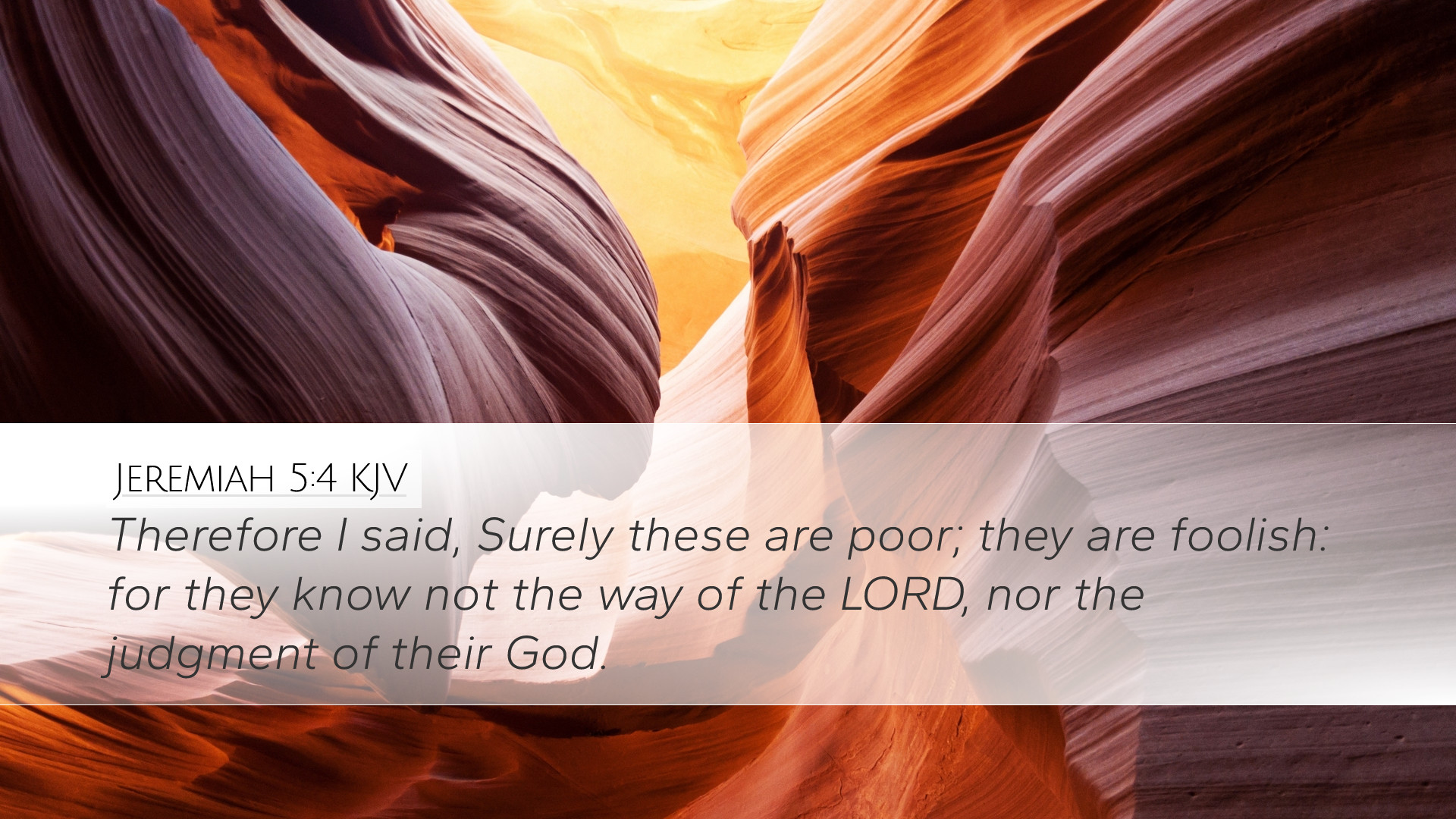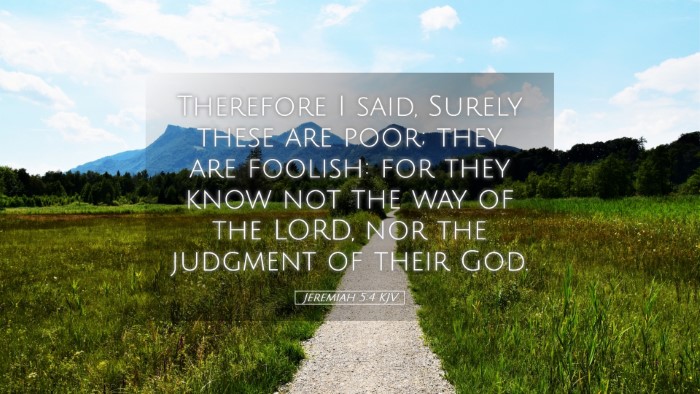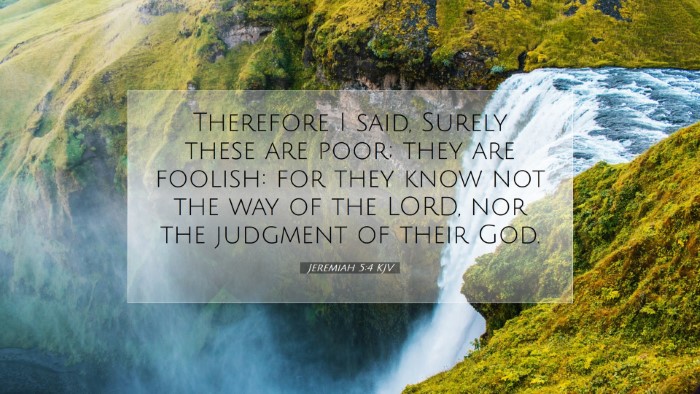Commentary on Jeremiah 5:4
Bible Verse: "Therefore I said, Surely these are poor; they are foolish: for they know not the way of the Lord, nor the judgment of their God." (Jeremiah 5:4, KJV)
Introduction
The verse from Jeremiah 5:4 serves as a profound commentary on the moral and spiritual state of the people of Israel. It highlights the consequences of ignorance regarding God’s ways and His judgments. In a world increasingly distant from divine truth, this verse holds timeless significance for ministers, students, and theologians.
Contextual Background
The prophet Jeremiah, often referred to as the "weeping prophet," delivered messages of warning and promise during a time of national crisis in Judah. He was tasked with conveying God’s judgment against the people's sins, as well as urging them towards repentance and a return to righteousness.
Commentary Insights
Matthew Henry's Insights
General Observations: Matthew Henry emphasizes that this verse reflects the sad state of the people as lacking in both understanding and true connection to God. He draws attention to their ignorance, stating that the poor condition of their knowledge has led them to folly.
Rich in Critique of Spiritual Ignorance: Henry argues that this ignorance is particularly culpable, given that it is coupled with the means of knowing God. Despite having the law and the prophets, the people are portrayed as foolish and incapable of discerning God’s judgments. This folly is compounded by a reliance on their own wisdom rather than divine revelation.
Albert Barnes' Analysis
Understanding "Poor" and "Foolish": Albert Barnes provides a detailed examination of the terms "poor" and "foolish." He notes that their “poverty” refers not merely to economic status, but rather to a spiritual condition marked by a lack of wisdom and discernment.
Judgment of God: Barnes further elaborates that God’s judgments are grounded in His character and holiness. The people’s failure to grasp this essential truth indicates a broader cultural and spiritual malaise. They have become dense to the workings of divine providence and the call to repentance.
Adam Clarke's Commentary
The Ignorance of the People: Adam Clarke echoes similar sentiments, highlighting the destructiveness of ignorance in the spiritual realm. He asserts that the knowledge of God is a vital component of faith and worship, and without it, people are led astray.
Application of the Judgment: Clarke emphasizes the implications of knowing or not knowing God's way and judgment. He warns that the consequences of disregard for divine truth can be catastrophic, not just for individuals but for the collective community. The voice of warning from prophets like Jeremiah serves both to illuminate their plight and to point towards the hope of restoration through repentance.
Theological Implications
- Spiritual Poverty: The verse challenges the reader to consider what spiritual poverty looks like in their context. It speaks to the need for wisdom and understanding as the foundations for a relationship with God.
- Discernment of God's Ways: An emphasis on discerning God's ways highlights the need for pastoral teaching and theological education that fosters spiritual maturity.
- Call to Action: The reminder of judgment calls both individuals and congregations to examine their understanding of God’s will and their response to His commands.
Practical Application
This verse serves as a sobering reminder for today's leaders, theologians, and believers. It beckons them to invest in deepening their scriptural understanding and fostering environments where God’s truth is critically examined and embraced.
In practical terms, church leaders might consider the following actions:
- Education and Discipleship: Implementing robust programs for scriptural education that encourage members to seek a deeper understanding of God’s ways.
- Encouraging Critical Thinking: Fostering a culture of questioning and learning where doubts and inquiries are welcomed as part of a healthy faith journey.
- Community Engagement: Encouraging congregations to engage society with the knowledge of God’s truth, offering a corrective to the prevalent moral and spiritual ignorance.
Conclusion
Jeremiah 5:4 serves as a poignant reminder of the spiritual condition facing humanity, both in antiquity and in modernity. Through the insights of biblical commentators like Henry, Barnes, and Clarke, we gain a multifaceted understanding of the dangers of ignorance in relation to God. For today’s theologians, scholars, and pastors, this text urges a renewed commitment to fostering wisdom, understanding, and a critical engagement with God's holy truths.


